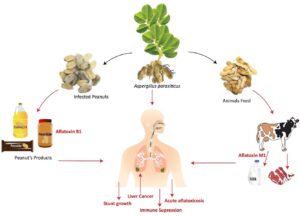In recent years, veganism and various forms of vegetarianism have surged in popularity, especially among young adults in the United States. While these dietary choices have been linked to health benefits such as reduced risk of cardiometabolic diseases, a recent study has raised concerns about the potential for vitamin B12 deficiency among young people, a topic examined in this article.
Veganism’s Growing Appeal
The appeal of veganism, known for its ethical and environmental considerations, has grown steadily. Young adults are at the forefront of this trend. However, a recent study published by the National Library of Medicine, titled “The Impact of a Vegan Diet on Many Aspects of Health: The Overlooked Side of Veganism,” highlights concerns regarding potential health risks associated with veganism.
Vitamin B12 Deficiency on the Rise
The UK Essential Health Check Report of 2022 conducted by YorkTest revealed startling insights. Blood analysis from 4204 participants indicated that 55% of women and 40% of men in their 20s had low levels of vitamin B12. This deficiency was attributed to the increasing popularity of vegan and plant-based diets, which have become a hallmark of the younger generation’s dietary choices.
The Age Factor
Contrary to conventional wisdom that vitamin B12 deficiency is more common among older individuals, this study challenges this belief. Dr. Gill Hart, Scientific Director at YorkTest, emphasizes that young adults are also at risk, highlighting the importance of diet and vitamin B12 levels in maintaining good health.
Understanding Vitamin B12
Vitamin B12, an essential nutrient, plays a crucial role in various bodily functions, including energy metabolism, nerve function, and DNA production. Deficiency in this vitamin can lead to a range of health issues, including fatigue, blurred vision, memory problems, depression, anaemia, and an increased risk of heart attack and stroke. It is important to note that unlike some nutrients, vitamin B12 cannot be naturally synthesized by the body, necessitating its intake through external sources such as food or supplements.
Balancing Veganism with Nutrient Intake
While vegan diets offer certain health benefits, they can pose challenges regarding nutrient deficiencies. Vital nutrients like vitamin B12, iron, calcium, iodine, omega-3 fatty acids, and zinc, typically found in animal-based foods, may be lacking. Careful planning is essential to ensure a well-rounded and nutritious vegan diet.
The Value of Maintaining Optimal Vitamin B12 Levels
In addition to the potential adverse effects of deficiency, research suggests that maintaining adequate vitamin B12 levels could contribute to reducing inflammation, safeguarding against cognitive decline, improving memory, and decreasing the risk of developing dementia. Moreover, low vitamin B12 levels have been linked to brain shrinkage, which underscores the importance of this nutrient in maintaining overall brain health.
Expert Recommendations
Health experts, including Vanessa Ascencao, advise individuals, especially those following plant-based diets, to plan their meals carefully. Prioritizing a variety of nutrient-rich foods like spinach, beetroot, and chickpeas is essential. Additionally, it’s advisable to avoid excessive sugar, alcohol, caffeine, and processed foods, as these can diminish vitamin B12 levels. Regular health check-ups and the use of high-quality supplements with proven absorption can further aid in maintaining optimal nutrient levels.
In conclusion, the rising popularity of veganism among young adults comes with both health benefits and potential risks, notably vitamin B12 deficiency. Balanced, well-planned vegan diets, along with supplements and regular health check-ups, can help mitigate these concerns, ensuring that young people can enjoy the benefits of their dietary choices while safeguarding their long-term health.














